Emerging Disruptors in Specialty Beverage
Delivered – Virtually
February 26, 2026
Welcome to the Specialty Beverage Conference Worldwide 2026! Dive into the world of innovative drinks and discover how industry leaders are redefining the beverage landscape with groundbreaking ideas and trends. Hear from top CEOs, beverage experts, and innovators as they share their insights into the latest advancements shaping this dynamic industry. Join us virtually on February 26, 2026, for an unparalleled experience that will quench your thirst for knowledge and creativity in specialty beverages!
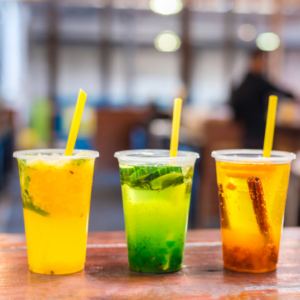
The specialty beverage market is so large that its size is difficult to quantify. The global functional beverage market alone was valued at $154.6 billion in 2023 and is expected to grow at a compound annual growth rate of 6.7%, reaching $207.8 billion by 2028. Selected market segment analysis follows:
- Energy drinks are the largest segment, accounting for 26% or $40.1 billion in 2023, with an expected CAGR of 7.3% from 2023 to 2028.
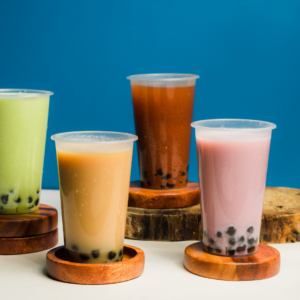
- Health and wellness beverages comprise 80.8% of the functional beverages market, projected growth at a CAGR of 5.8% from 2023 to 2028.
- In 2024, the global coffee market was estimated to be between $132.1 billion and $245.2 billion.
- The global craft beer market, which includes microbreweries, was valued at $107.3 billion in 2024. That market is projected to grow to $42.8 billion by 2033, exhibiting a CAGR of 9.5% during the forecast period (2025-2033).
In North America, microbreweries increased from 1,500 in 2000 to over 8,000 by 2023. In the U.S., the total number of craft breweries (including microbreweries) reached an all-time high of 9,683 in 2023.
A few of the specialty beverage industry’s primary drivers include heightened health consciousness (non-alcoholic beverages are growing much faster than alcoholic beverages), greater availability (drinks can be ordered with a few taps on a phone screen, and subscription models abound), and social media-driven marketing campaigns. Further, customers are now afforded tremendous customization (for example, coffee roasts, origins, and flavor profiles) and personalized recommendations. Below are some of the factors contributing to the rapid growth in select segments of the specialty beverage industry:
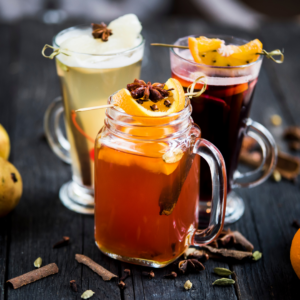 Ready-to-drink coffee and tea boast innovations such as cold brew coffee in convenient packaging, and chai concentrates for easy preparation.
Ready-to-drink coffee and tea boast innovations such as cold brew coffee in convenient packaging, and chai concentrates for easy preparation.- In the specialty waters category, prebiotic and probiotic-infused waters are becoming increasingly popular.
- Plant-based and dairy-free beverages are experiencing significant growth, catering to diverse dietary preferences and sustainability concerns.
- The cocktail landscape is evolving with uncommon flavor profiles in alcoholic beverages (e.g., savory, smoked, or botanical) and the popularity of mocktails (offering cocktail flavors without alcohol).
- Beverage producers are increasingly creative as they offer globally inspired flavors, unique combinations, limited editions, and seasonal flavorings.
The following are among the recent innovations in the specialty beverage industry:
- Due to health concerns, many drinks are fortified with vitamins, minerals, and other functional ingredients. Some of the heightened concerns revolve around immune health, brain function, and digestive wellness.
- The market is seeing a surge in novel ingredients and formulations such as (a) plant-based proteins, adaptogens, and nootropics like L-theanine and Ashwagandha; (b) prebiotic fibers and probiotics for gut health support; and (c) natural caffeine sources and energy-boosting ingredients.
- Beverages are being developed to target specific needs and demographics, such as active hydration and rapid rehydration drinks for sports and recovery, mood-enhancing beverages for stress relief and relaxation, and women’s health-focused drinks that address needs like menopause and lactation.
- The industry is introducing new delivery formats. Examples include jelly drinks, functional powders, effervescent tablets, and edible films.
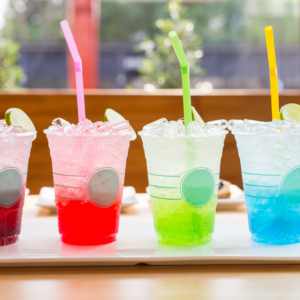
Specialty beverage producers must be sensitive to their customers’ health, sustainability, ethical sourcing, fair trade, and transparency regarding ingredient origins. Missteps regarding these social third rails can quickly enflame social media, causing irreparable harm to the transgressor.
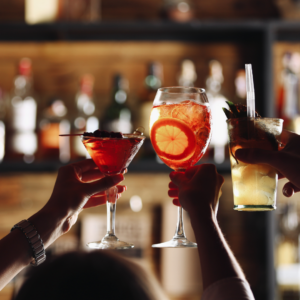
The industry must also stay current with various regulatory frameworks regarding ingredient approvals, labeling requirements, and health and safety standards compliance. Recent years have illuminated the risks of faulty supply chains and disruption caused by hyperinflation. Furthermore, the success of specialty beverages has engendered tremendous competition.
A ton of money is flowing into the specialty beverage industry. Recent industry IPOs include Innovation Beverage Group and Heritage Distilling Holding Company. The industry has been busy on the acquisitions front:
- Simply Good Foods acquired Only What You Need (OWYN), a plant-based protein shake brand, for $280 million
- InvestBev backed JuneShine with a seven-figure investment
- Chobani Inc. acquired La Colombe Torrefaction Inc.
- Asahi acquired Octopi Brewing
- Paskenta Band of Nomlaki Indians acquired Mad River Brewery
- Owners of Jack’s Abby purchased Wormtown Brewery
- Chobani Yogurt founder bought Anchor Brewing Company
 Meanwhile, venture capitalists have actively taken positions in emerging specialty beverage manufacturers. To wit:
Meanwhile, venture capitalists have actively taken positions in emerging specialty beverage manufacturers. To wit:
- Better Juice raised $8 million in seed funding from investors, including iAngels, Maverick Ventures, and The Kitchen Hub
- OLIPOP secured $30 million in funding from investors, including Monogram Capital Partners and several celebrities
- Bevi raised $165 million from investors such as Cowen Sustainable Investments and Bessemer Venture Partners. Bevi creates smart water dispensers with customizable flavors
- KEY obtained $4 million in seed funding led by AgFunder
- Bevz raised $3.1 million from various investors, including Dynamism Capital and Golden Section Ventures
Interestingly, significant investment in specialty beverage producers hails from celebrities. For instance:
- George Clooney sold his Casamigos Tequilla to Diageo
- Dwayne Johnson has a position in ZOA Energy.
- Kendal Jenner is an owner of 818 Tequilla, while Kylie Jenner is an owner of Sprinter
- Beyonce has a stake in Lemon Perfect
- Jason and Travis Kelce are owners of Garage Beer
- Camila Cabello has an equity position in Olipop
The presenting management teams will discuss how their companies are penetrating the vast specialty beverage industry. They will apprise listeners of their unique product offerings, key selling points, and targeted customer segments. They will inform us of their research and development efforts, proprietary technologies, trade secrets, and patent portfolios. They will tell us about their business models, including their collaborations, licensing strategies, distribution channels, expansion efforts, customer acquisition strategies, manufacturing strategies, milestones, and exit strategies.
Please check back for the agenda of the presenting companies. If you would like to nominate a company to present, please contact Tabitha Owuor at tabitha@davosinthedesert.co
Register now to listen to presentations from industry leaders and innovators. Registration is free for members of Davos in the Desert. Non-members can register now for just $10. No refunds.
Secure your spot today and get an exclusive look at some of the most innovative brands and pioneers in the specialty beverage industry!


